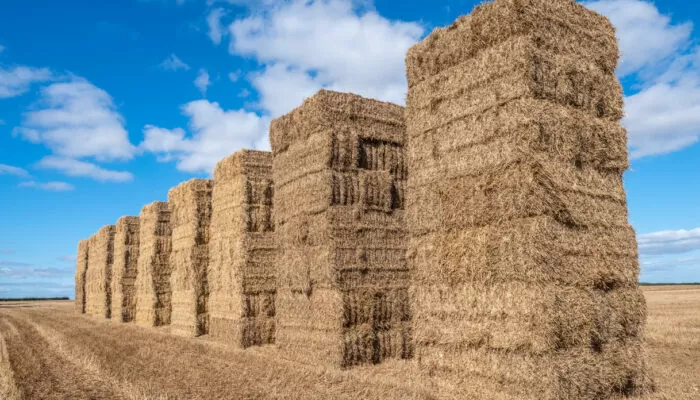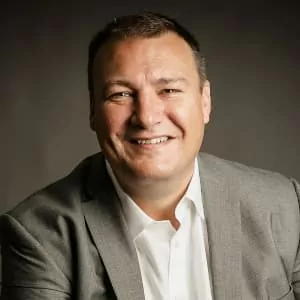Hello world – meet Tensei

As a slight change to what I normally write about, I thought I would introduce you to a company we have been working with for the last 3 years, who I hope you will be seeing a lot more of in the future.
Tensei think it is ‘Smart to use what is wasted and not waste what is precious’.
This nugget of a company was founded by Annabelle Cox, previously co-founder of SCIN, the UK’s largest materials library and resource based in London, Clerkenwell. Curiosity and Systemic Design has fuelled her relationship with business. Early 2013 and on the back of an exhibition at SCIN showcasing materials development inspired by the farm, she realised that there was potentially an opportunity to create technical materials, notably papers, from straw. Historically, straw has been used in Indo-China as a substitute for wood pulp. Adoption in the West though is another story and for good reason, there was plenty of forestry.
Fast forward to 2016 and change rides wildly into town as the perfect storm of shifting societal habits, resource constraint, climate change and plastic ‘non gratis’ colluded to Tensei’s benefit. We needed and need to look to pastures new and ironically, some answers lie in the field.
So why was this so interesting for Tensei? In a nutshell, Tensei researches, develops, and produces smart and or useful pulps, materials and products using biological systems, notably crop waste, biowaste and grasses.
This may sound simple and to an extent it is but the ‘to do’ list to make change happen for comfortable global adoption of these fibres is extensive: consistency, quality, supply, accreditation are some of the interesting headers.
Whilst Tensei are working hard to supply some of the answers, in part through a new technology platform to deliver on those requirements for adoption, they appreciate that for any innovation to succeed, it needs to work within current operating systems first before it can stretch its legs. Tensei’s approach therefore is to gently tickle Industry into making the change. For example, Tensei specifically work using commercially available pulps at this stage – wheat, bagasse, hemp, jute, bamboo, rice straw, cotton linters, flax but in the future, this will extend to a broader base of fibre from multiple bio waste streams.
To put it into greater context, the paper and board pulp market is currently about 431million tonnes of which non-wood is roughly 3% of the market – 12 million tonnes. ( source FAO) Yet there is roughly 2.5 billion tonnes of uncollected straw estimated to be available.
A scalable, financially profitable business is of course important but the endemic spirit driving this is the need for the global economy to see the opportunity afforded by this raw material source. It is yet to become the ‘Go to’ material of choice but it waits quietly in the wings. Tensei is one of the drivers towards mainstream adoption of straw or crop waste as a viable, albeit different, resource for multiple industries from packaging to bio composites, textiles to chemicals.
Tensei is diaphanous: part synthetic biology, part tech and full on environmental in its positioning as a company and ethos.
It sits between ‘Impactful’ and tech. Almost like a person yearning for mindfulness but with formula 1 elbow tweaking. Like many emerging companies, Tensei is part of the global bioeconomy and according to Forbes:
“The global bioeconomy is about to take off as manufacturers choose biology as the method of choice to efficiently produce high-performance, sustainable products. Synthetic biology is at leading edge of this $4 trillion gold rush”
Part of Tensei’s offering is product based, this helps it to embark on its own R&D projects and demonstrate how it can also commercialise innovation for its customers. To date, Tensei has developed its own papers for food and drink: absorbent papers for uses ranging from pads in soft fruit punnets, bakery and in the future meat, fish and poultry, takeaways. and new recyclable coated laminate papers for a range of products from straws to crisp bags.
So, for those that want to future proof and deliver a genuinely impactful set of product solutions Tensei would love to help solve problems ranging from alternative solutions to plastic to what to do to valorise biowaste. The crop harvest is no longer just about food, it may even one day form part of a satellite construct orbiting earth. For more information on Tensei, visit www.tensei.co.uk.
Tensei have so far been able to claim around £30k for their historic R&D efforts and we are currently preparing claims for more, which will no doubt be used to fund future R&D that this innovative business, with an alternative idea, still has to undertake to widen their product portfolio.
To arrange a “Find Out in Fifteen” discovery session to determine your eligibility to claim visit, www.calendly.com/Simon-Bulteel

